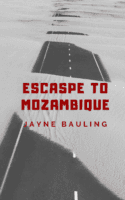What kind of evil man is a rapist? What kind of person gets raped?
As you’ve read in Hero Within, when we think about rape, we must get away from the common stereotype. That is, that rough, gangster-type guys are the rapists and slutty girls in tight, sexy clothes get raped, and they all live in poor neighbourhoods. A main message of this story is given by Khanyiswa, addressing the school assembly:
Rape doesn’t care about your age, skin colour, family status … or even if you’re a boy or girl,” she continues. “The thought that I could be raped never crossed my mind. I mean, look around you. We live in a great neighbourhood and attend one of the best schools around. I didn’t ask to be raped, but it happened to me.
This rape story shows how things should be when a girl says she has been raped. At the same, time it illustrates the reasons so many rapists get away with their crimes.
To start, let’s look at what protects rapists.
First, the things many people say about girls ‘deserving’ to be raped, mean that self-blame is common in victims. Remember what Khanyiswa persuades herself:
I’m sure he didn’t mean to touch me like that, she thinks. That book was way up high and he’s a respected teacher. No, it was an accident, she assures herself. He wouldn’t do something like that.
Then, when Mr Hill has raped her, she apologises to her mother, and later her father saying, “”I’m sorry, Tata. It’s partly my fault. I–”
Both her parents are right to immediately reassure her of the truth: “Don’t ever blame yourself for someone else’s actions, Khanyiswa,” he says …
Second, the rapist uses threats, bribery, and tells her that ‘no-one will believe you’ that a so-called ‘respectable’ person, like a teacher, would commit such a crime.
“There’s nothing to tell. This will be our little secret and you’ll get an ‘A’ in physics without even trying,” he says, his hands fumbling at her breasts. … And remember: don’t tell anyone. Or I will tell them you threw yourself at me to get a better test grade, and I rejected you.”
Third, just as Mr Hill said, an important person in Khanyiswa’s life, her Principal, doesn’t believe her. In fact, he accuses her of trying to ruin the teacher’s life! Plus, look at how the mean girl in the school, Mika, also blames her: “I bet she was looking for a sugar-daddy and got rejected.”
Fourth, because it is so difficult to face uncaring police officers, all the while knowing that the case is unlikely to succeed, that most rapes in our country are not reported. Miss Lisa and Khanyiswa come face to face with this attitude when they try to report the rape. The rape victim is put through what is called ‘secondary trauma’. Later, the lawyer, Brenda Magele, warns Khanyiswa that reporting the rape is just the start:
“I’m not going to lie to you and tell you the difficult part is over,” says Brenda. “In fact, this is where it starts …”
Now let’s turn to how Hero Within shows what must happen to get more rapists behind bars. If this happens it will, we hope, help to lower the shockingly high rate of rape in our country.
The first thing a rape victim needs is shown in this exchange:
“Nobody will believe me,” Khanyiswa says. “You heard Principal Hector, Miss.”
“I believe you, Khanyiswa,” Miss Lisa assures her.
Not only does her teacher believe her and care for her at once, Khanyiswa’s parents also both believe her, love her and care for her. This gives her the strength to go through the ordeal of reporting the case. Instead of having to prove her side of the story, while hurting physically and mentally, their belief strengthens her:
But with each step she takes, she becomes determined to be strong. Miss Lisa believes me. I can do this, she thinks. I did not ask to be raped.
Secondly, rape is a specially nasty kind of crime, that is intimate and shaming. It needs well-trained people to deal with victims, so they are not further harmed while collecting the vital evidence needed for the case to succeed.
For example, Miss Lisa has been to a special workshop on rape, so knows just what to do when Khanyiswa tells her what happened. The training also helps Miss Lisa to stand up to the Principal and the police, and do the right thing.
The story then takes us through what happens in a provincial care centre that has specially trained staff. The story calls this centre the Ithemba Care Centre. This is not real, but the government has set up care centres like this in each province: Thuthuzela Care Centres (TCCs)* – find out more in the note below.
There, we feel for poor Khanyiswa who has just been raped, and now has to have her private parts examined for evidence by a doctor – a male doctor. The story shows how between them, the caring staff and Khanyiswa’s mother patiently support her through this ordeal.
The care centre also has a specially trained social worker and lawyer. All these people make sure that good evidence is collected. Her injuries are treated, and medicine is given so she doesn’t get an STD or get pregnant. Khanyiswa is also guided through making her statement to the police, and given counselling.
By the end, we feel that evil Mr Hill will get the punishment he deserves. This is due to both Khanyiswa’s strong personality and the vital support she gets all along the way – support that brings out her ‘hero within’. We admire her for becoming an anti-rape activist and talking to the whole school. Her rape will not be secretly whispered about, it will be used to fight this national scourge.
If you, reading this, or anyone you know, was raped and did not report it, you are still a hero survivor. As the story shows, no-one can be blamed for not laying a charge in the face of self-blame, disbelief, uncaring and and/or untrained police officers, lawyers and hospital personnel.
* Note: As mentioned above, the government has set up Thuthuzela Care Centres (TCCs) in each province. Thuthuzela means ‘comfort’ in isiXhosa and the Centres are places of comfort, safety and support for survivors of sexual abuse/assault. They were set up because we have a very high number of rapes, but victims are often unwilling to report it. They help the survivors report the crime and get medical help, and gather evidence, plus help the survivor through the court case. The end aim of this project is to speed up the legal process and find more rapists guilty. This should discourage people from committing the crime.
TCCs are in regional government hospitals, are open 24/7, and are free. Find the one closest to you here: TCC locations by province TCC Brochure.
Alternatively try out the new Survivor’s Support Service via USSD. Dial *134*1994*1# to access a free and anonymous list of services in five languages for survivors of sexual violence.
Other organisations to help in rape cases:
The Tears Foundation
Sonke Gender Justice
Rape Crisis Foundation (Cape Town)





